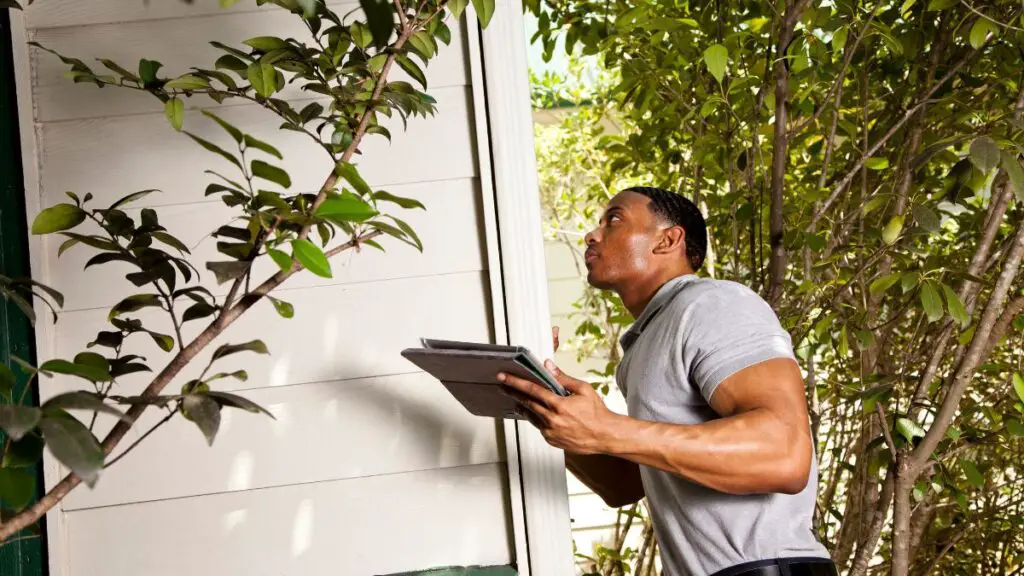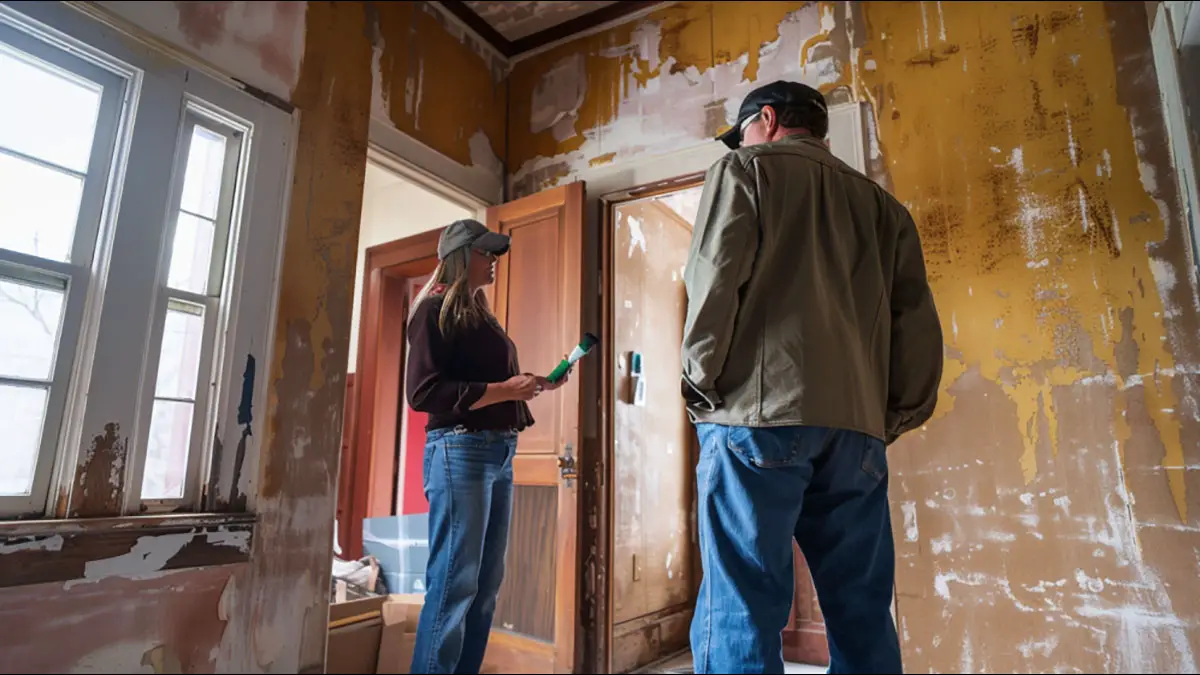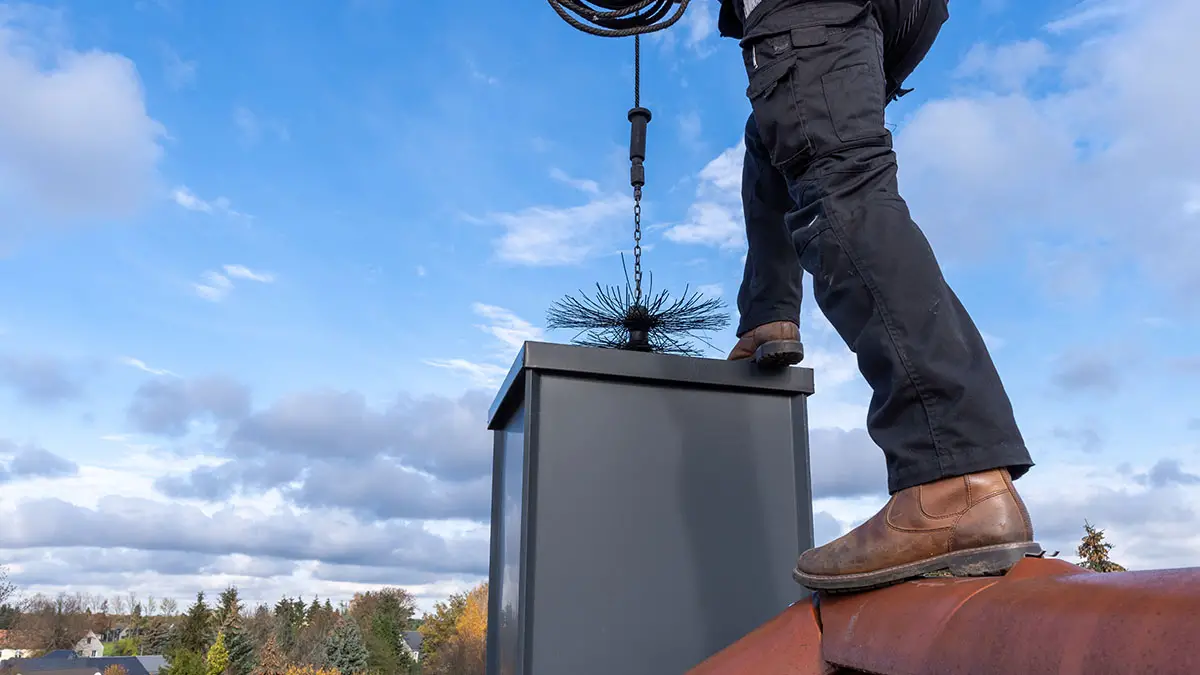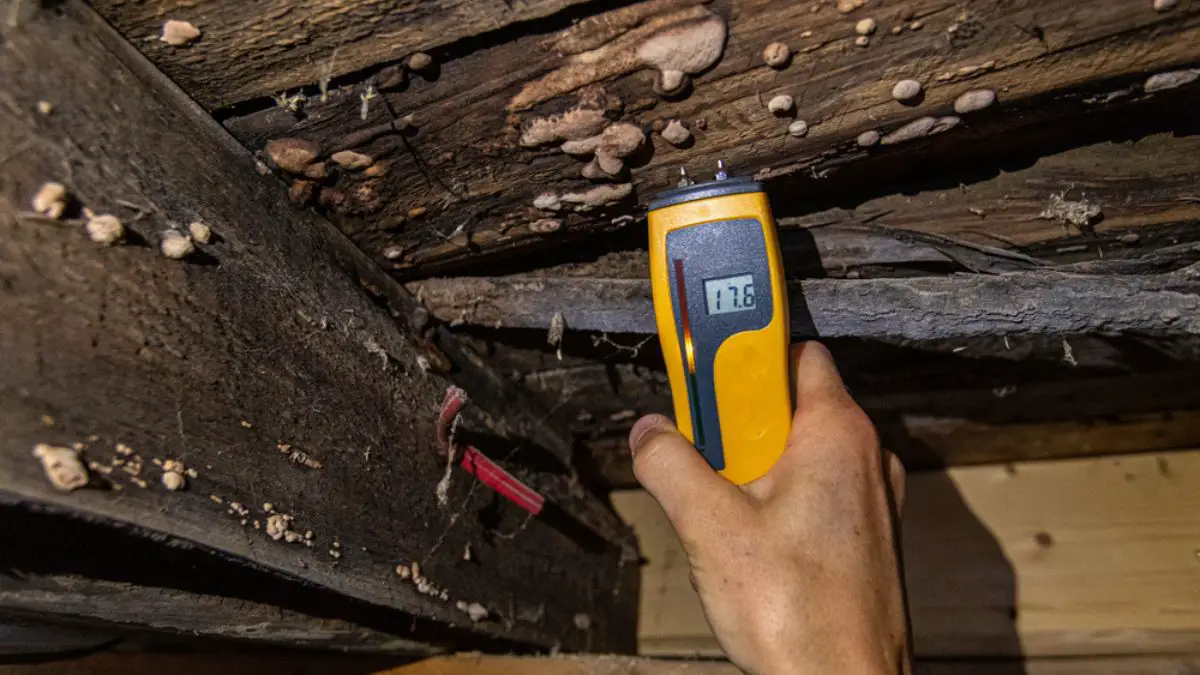Did the home inspector miss anything when you bought your house? Many homeowners wonder, “Can you sue a home inspector?” when they discover problems after moving in.
Yes, you can sue a home inspector for missed items or gross negligence. But, it can be challenging to prove a home inspector missed things. Home inspections are not exhaustive and have limitations. Before you take legal action, talk to the inspector about your concerns and try to find a solution.
If the inspector is negligent, you can file a claim against their insurance for damages. If the inspector broke any laws or rules during the inspection, you can talk to the licensing board.
A home inspection is for a specific point in time. It is not a guarantee or warranty that there are no issues with the home. Additional inspections may be necessary to determine existing or potential problems.
For instance, a home inspector says the roof is 10-15 years old and is in good condition. If your roof starts leaking in 6 months, you’re home inspector didn’t necessarily miss something.
Before you dive into playing with it, you’d want to make sure it’s safe and works as promised. That’s where home inspectors come in. They’re the experts who check houses for any hidden surprises. Sometimes, things can go wrong.
Homeowners start asking questions about their rights then. Let’s explore home inspections and what to do if things don’t go as planned.

The Role of a Home Inspector
- Detective for Houses: Like Sherlock Holmes solves mysteries, a home inspector uncovers hidden issues in a house. They’re the experts who make sure everything’s in tip-top shape.
- Eyes and Ears: They look at every nook and cranny, from the roof to the basement. They listen to strange sounds and check if everything works as it should. They’re the eyes and ears of potential homeowners.
- Guardians of Safety: Their main job? To ensure the house is safe. They check for things like:
- Structural deficiencies: Making sure the house won’t collapse!
- Mechanical defects: Ensuring things like heating and plumbing work well.
- Potential hazards: Look for things that might harm you, like mold or faulty wiring.
- Report Masters: After their inspection, they create a detailed report. This isn’t just any report. It’s a guide that tells you everything about the house, good and bad. It helps buyers make informed decisions.
- Helpful Guides: Home inspectors aren’t just there to point out problems. They’re also there to educate and guide. They’ll give you tips on how to maintain your home and even how to fix minor issues.
Discovering Undisclosed Defects Post-Purchase
Imagine this: You’ve just bought a brand-new toy, but after playing with it for a bit, you notice it’s missing a piece. Bummer, right? Similarly, after buying a house, you might find issues no one told you about. These are called “undisclosed defects.”
- What’s the Big Deal? Like that missing toy piece, undisclosed defects in a house can be a real downer. Maybe there’s a leaky roof, or the basement smells weird because of mold. These problems can be costly and stressful.
- Why Didn’t I See This Before? It’s not always your fault. Some issues are hidden or don’t show up right away. It’s like finding out your toy’s batteries run out super fast only after you’ve played with it a few times.
- Who’s to Blame? Sometimes, the previous owner knew about these defects but didn’t tell you. Other times, they might not have known at all. It’s a tricky situation.
Legal Claims Against the Home Inspector
Alright, let’s dive into a topic that might seem a bit complicated, but stick with me. We will discuss when and how you can take legal action against a home inspector.
Think of it like this: If someone sold you a toy and promised it would work perfectly, but then it broke the first time you played with it, you’d be pretty upset, right? Similarly, if a home inspector misses significant issues in a house, you might want to hold them accountable.
Why Sue the Inspector?
Home inspectors are like the guardians of house buying. They’re supposed to spot problems so you can make an informed decision. If they miss something big, it can cost you a lot of money and stress.
It’s like if a friend said a toy was in perfect condition, but it had a hidden crack. You’d feel misled.
Types of Legal Claims:
Negligence: This is the most common claim. It means the inspector didn’t do their job as well as they should have. It’s as if someone was supposed to check every puzzle piece but missed a few.
Breach of Contract: If you and the inspector agreed (usually in writing) on what they’d check, and they didn’t do it, that’s a breach of contract. Imagine if you paid extra for a toy’s special feature, but it didn’t work.
Misrepresentation: When an inspector says something is okay when it’s not. It’s like if someone sold you a toy, saying it’s brand new, but it’s been used.
Proving Your Case:
Just being upset isn’t enough. You need evidence in a lawsuit. It’s like needing a receipt to return a broken toy.
Expert Opinions: Get another inspector to check out the house. If they find issues the first inspector missed, it can support your case.
Photos and Reports: Document everything. Take pictures of the problems. If you have reports or emails where the inspector said everything was fine, keep those safe.
Watch Out for the Fine Print:
Many inspectors have contract clauses that limit how much they have to pay if they miss something. It’s like those toy warranties that only cover certain damages.
Read the contract carefully. Know what you’re agreeing to.
Seeking a Solution:
Before going to court, consider talking to the inspector. Maybe they’ll offer to pay for repairs or refund their fee. It’s like asking for a toy exchange before demanding a refund.
If that doesn’t work, you might need to take legal action. But remember, the court can be time-consuming and expensive. It’s a big step.
Home inspectors are human, and humans can make mistakes. But if their oversight costs you a lot, it’s essential to know your rights and options. Always consult with a legal expert if you’re unsure. They can guide you, just like how a toy manual helps you understand how a toy works.

Understanding Exculpatory Clauses
Let’s play a little game of imagination. Picture this: You buy a ticket for a fun roller coaster ride. But on the back of the ticket, tiny writing says, “Not responsible if the ride breaks.” That’s like an exculpatory clause in the world of home inspections.
What’s an Exculpatory Clause?
It’s a fancy term for a simple idea. An exculpatory clause is a part of a contract that says one party (like the home inspector) might not be responsible if something goes wrong. It’s like a “get out of jail free” card in a board game.
Why Do They Exist?
Home inspectors use these clauses to protect themselves. Inspecting a house is a big job, and sometimes, things can be missed. This clause helps them avoid big lawsuits for minor mistakes.
Should I Be Worried?
It’s essential to read and understand any contract before signing, especially the fine print. If there’s an exculpatory clause, know what it means for you. It’s like reading the rules before playing a game.
What Can I Do?
If you’re not comfortable with the clause, talk about it. Maybe it can be changed or removed. Remember, contracts are like agreements between friends; both sides should be happy.

Negotiation and Mediation
Now, let’s talk about fixing problems without going to court. Imagine having a disagreement with a friend over a toy. Instead of fighting, you both sit down and talk it out. That’s kind of like negotiation and mediation in the grown-up world.
Negotiation: The Friendly Chat
This is when two parties (like you and the home inspector) talk directly to solve a problem. It’s a give-and-take conversation, like trading stickers or cards with friends.
Mediation: Bringing in a Referee
If talking doesn’t help, you can bring in a neutral third person called a mediator. This person doesn’t take sides. They’re like a teacher helping two kids resolve a playground dispute.
Why Not Just Go to Court?
Going to court can be slow, expensive, and stressful. Negotiation and mediation are faster, cheaper, and friendlier ways to solve problems. It’s like choosing to talk instead of fight.
The Goal: A Win-Win Solution
The aim is to find a solution that makes everyone happy. Maybe the home inspector agrees to pay for repairs, or you both decide on a fair discount. It’s all about finding that middle ground.
Disagreements happen, but they can be solved with understanding and communication. Whether it’s a toy dispute or a home inspection issue, talking things out can lead to happy endings for everyone.
FAQs
Do home inspectors make mistakes?
Yes, home inspectors can make mistakes. They are human, and there is a potential for human error. Home inspections are not exhaustive and don’t cover everything. If you feel your home inspector made a mistake, ask about it. They may be able to explain what happened or offer a solution.
How can homeowners prove the negligence of a home inspector?
To prove negligence, homeowners need evidence like a second opinion from another inspector, photos of problems, and the original inspection report.
What is the professional standard of care for home inspectors?
The “Standards of Practice” is like a guidebook for home inspectors. The Standards of Practice outlines the scope of work that a home inspector needs to do for the inspection to meet professional requirements. This includes identifying any major repairs or defects that could affect the value of your home, as well as noting anything that is not inspected.
What are the most common claims against home inspectors?
Common claims include missing visible issues, improper testing systems, and misreporting findings. These claims include water intrusion, structural deficiencies, roofing damage, and pest infestations. A buyer may allege that the inspector failed to disclose information that would have been important to know before purchasing the home.
Closing Thoughts
Buying a house is a big step, and it’s essential to know you’re making the right choice. That’s where home inspectors come in. They’re helpful guides on a treasure hunt, ensuring you find the perfect gem. But, just like in any adventure, things can sometimes go wrong.
Understanding Your Rights:
- As a homeowner, you have rights. If a home inspector misses major Issues, it’s crucial to know what you can do about it. It’s like knowing the rules of a game; it helps you play better.
Recommendations for Homeowners:
- Always research and choose a reputable home inspector. It’s like picking the best player for your team.
- Read the inspection report carefully. Ask questions if something isn’t clear.
- Remember, communication is key. If there’s an issue, talk about it. Most problems can be solved with understanding and patience.
In the end, your home is your castle. Make sure it’s a safe and happy place with the help of a trusted home inspector. Always stay informed, ask questions, and know your rights. Happy house hunting!







